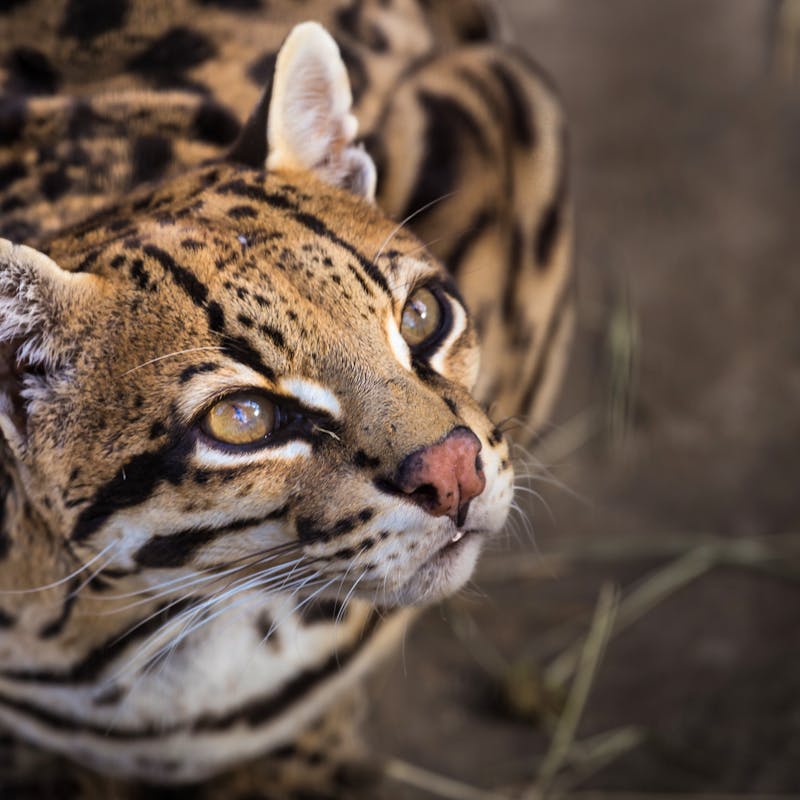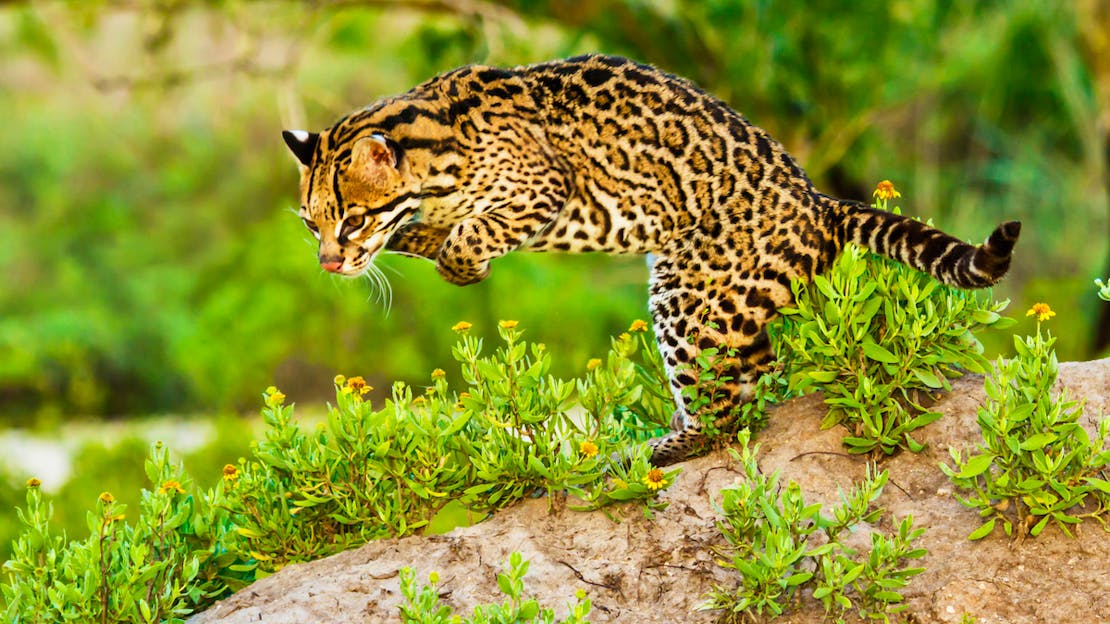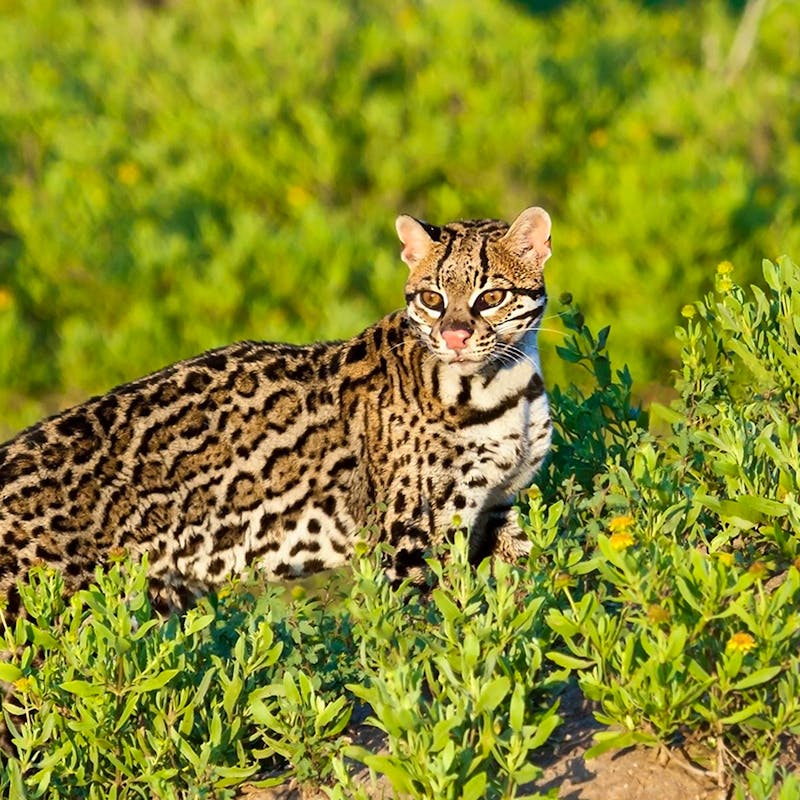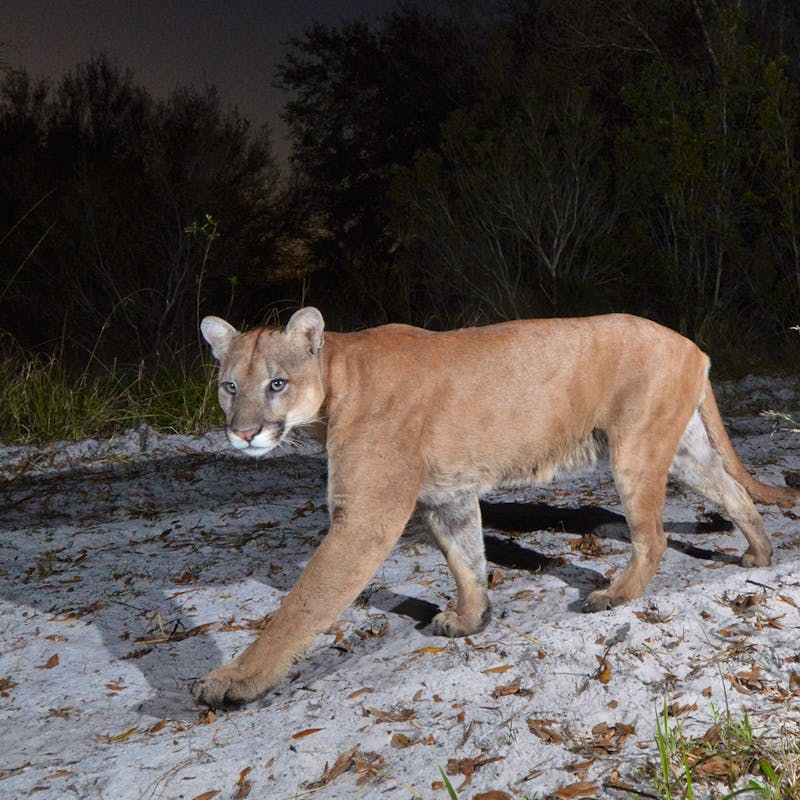Join our mobile Rapid Response Network!
You can be the first to hear about how we’re going to hold this administration accountable and how you can fight back for wildlife!
A medium-sized wildcat, ocelots have a distinct “chain rosette” spotted coat, a long ringed tail, and slightly rounded ears.
Why are ocelots imperiled?
Once ranging throughout the Southwest, today the only breeding population of ocelots in the U.S. is in Texas, where fewer than 60 ocelots remain in two small populations near the Mexican border. Occasionally, dispersing male ocelots from Mexico also migrate into southern Arizona.
The biggest threat to the ocelot’s survival is the degradation and loss of habitat caused by industrial development like SpaceX, agricultural development and urbanization, and vehicular traffic.
In the United States and throughout their range, ocelots are impacted by habitat loss and fragmentation, vehicle strikes, unintentional poisoning from rodenticides, and hunting for fur and the pet trade.
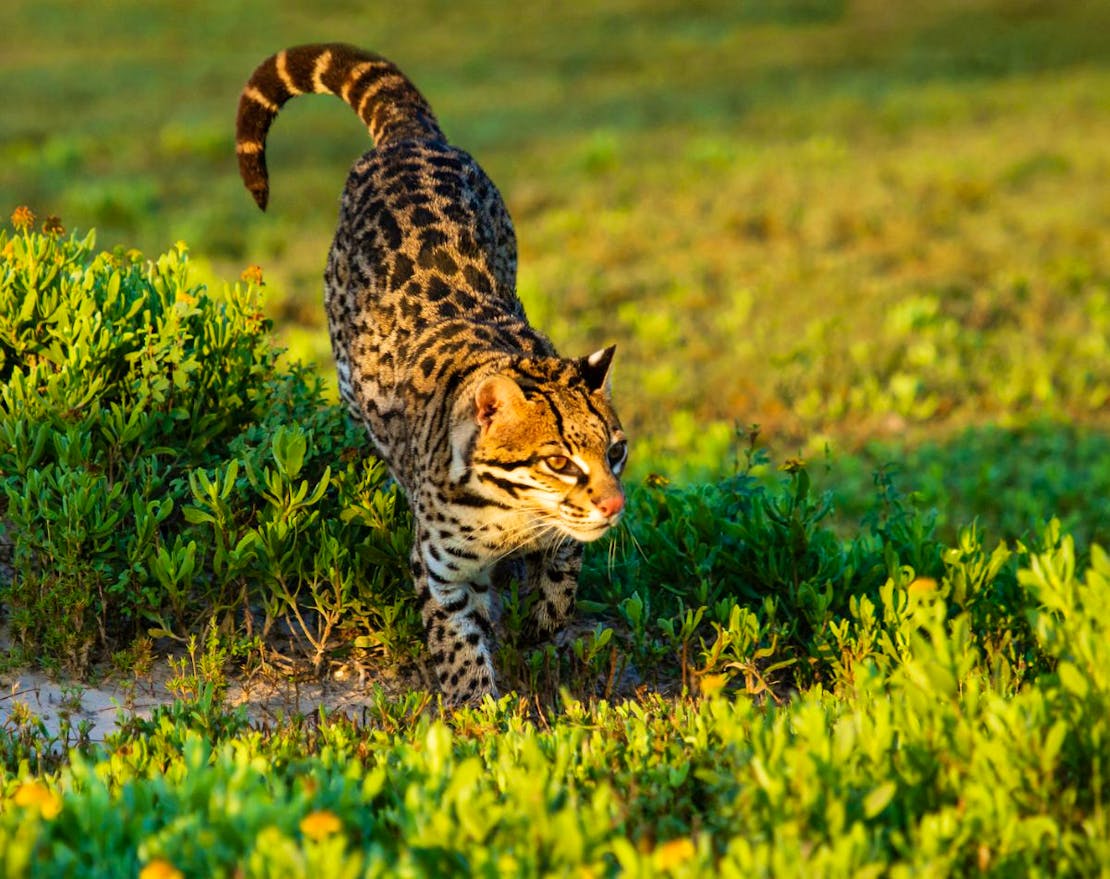
Defenders' Impact
Defenders is working in South Texas to raise awareness of the presence of these cats on the landscape and the best practices for coexisting with them. We are dedicated to ensuring these cats can continue to live alongside these communities by engaging in education, outreach, and conservation activities in the Rio Grande Valley and throughout the state.
As a part of a coalition of local and national partners, we are fighting the construction of industrial infrastructure, from liquified natural gas facilities to spaceports, that would undermine ocelot recovery by directly impacting vital habitat and blocking a vital north-south migration corridor.
You can be a part of the solution for endangered species: support our efforts to protect the wild!
What You Can Do
Help us raise awareness of the ocelot’s presence in Texas. Speak up for ocelots and the continued support of endangered species protections, like the Endangered Species Act.
Support efforts to protect private, state and federal land that is prime habitat for ocelots. Advocate for better road planning and wildlife crossings on Texas roads.
Raise your voice in opposition to liquid natural gas development in South Texas and the border wall, both of which will destroy native habitat and cut off the ocelot population from habitat in Mexico.
If you live in ocelot country, slow down and watch the roads for ocelots. Encourage poison-free rodent control techniques. Encourage hunters to use lead free, non-toxic ammunition. Adopt “Leave No Trace” ethics and organize clean-up activities in South Texas. Support and participate in habitat restoration planting days.

About
The ocelot ranges throughout the Western Hemisphere, from southern Texas to northern Argentina. This species lives in a variety of vegetated habitats, from tropical and subtropical rainforests in Central and South America to semi-arid thornscrub in Texas and northern Mexico. Ocelots depend on dense vegetation for protection, denning, raising young, and hunting.
An estimated 800,000 to 1.5 million are found throughout the Western Hemisphere. In the U.S., fewer than 60 ocelots remain in two tiny populations in southeast Texas. Additionally, occasional migrants enter southern Arizona from Mexico.
Ocelots are strongly nocturnal, resting in trees or dense brush during the day. They are very active, traveling from one to five miles per night. Males usually travel farther than females, especially to look for mates.
Kittens are independent after about one year but may stay with their mother for an additional year.
Mating Season: October for ocelots in Texas, spring months in Central America
Gestation: 79-85 days
Litter size: 1-3
Ocelots are opportunistic hunters and eat a range of animals including rodents, rabbits, young deer, birds, snakes, lizards, and fish.
Featured
Facts About Ocelots and How You Can Help Save Them
Learn some fun facts about ocelots, why they are endangered and how you can help save them in this Q&A.
Read More About the Ocelot
News
